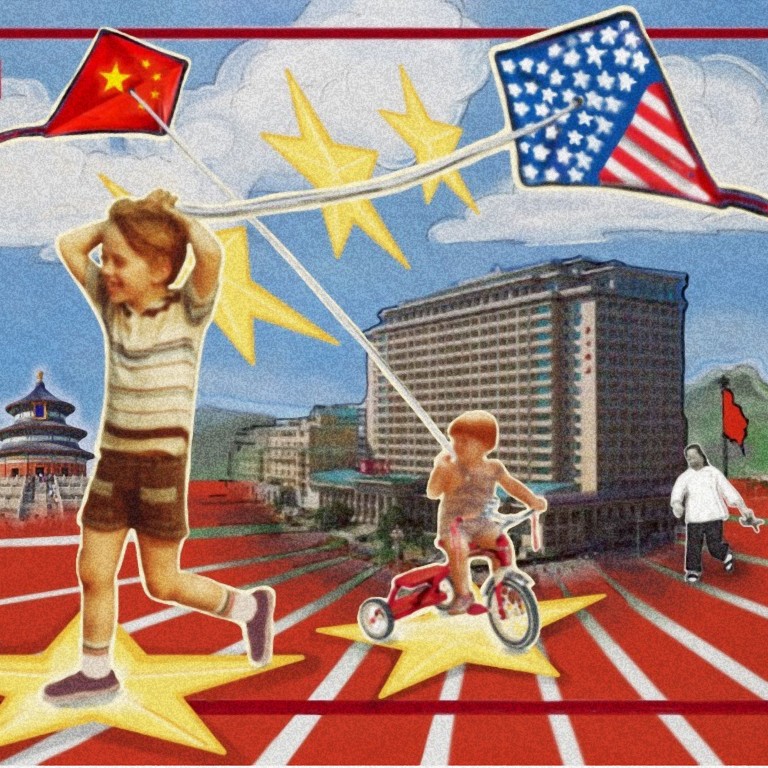
How Communist China taught an American boy ‘the real meanings of democracy, tyranny and resistance’
- Joe Mathews, the son of American journalists, recalls his adventures in Beijing as a spirited six-year-old
- Shortly after the normalisation of Sino-US relations in 1979, he learned the real meanings of democracy, tyranny and resistance
A worker comes to Beijing, to Communist Party headquarters, and asks to see Chairman Mao.
A soldier stops him. “You can’t see Mao,” he says. “He’s dead.”
The worker returns the next day, and again asks for Mao. The same soldier turns him away: “You can’t see him. He’s dead.”
The third day, the worker returns, and insists: “I must see Chairman Mao.”
The soldier loses his temper. “I told you yesterday, and the day before that. Chairman Mao is dead. Dead! Dead! Dead!”
“I know,” says the worker, with a smile. “I just love hearing you say it.”
That is the first joke I remember learning. I was six years old when I committed it to memory and started retelling it.

From ages five to seven, I was a pint-sized participant in the creation of the modern relationship between the two most important nations on Earth. At the end of 1978, Jimmy Carter and Deng Xiaoping announced what was called normalisation – the re-establishment of diplomatic relations between the United States and China, after three decades of estrangement following the 1949 communist takeover.
Normalisation immediately opened up China to Americans. So, early in 1979, not long after Deng mounted a tour of the US to introduce himself, I moved to Beijing, arriving on a plane with American diplomats and their families. I was the son of American journalists, Jay Mathews of The Washington Post and Linda Mathews of the Los Angeles Times, who were two of the first four US newspaper reporters given visas to live and report in China.
Beijing was the first city I knew intimately, at least as well as a child can. The Chinese capital, during 1979 and 1980, is where I first became aware of the outside world. And my time there left lasting impressions – about history, hotels, childhood and especially the real meanings of democracy, tyranny and resistance.
Mine is a Californian family, tracing our heritage to Scotland and Ireland, but for nearly a century the joke has been that we are secretly Chinese. In the 1920s, my great-grandfather, US Naval Commander Raymond Corcoran, moved his wife and children, including my paternal grandmother, to the small Shandong Peninsula seaport of Chefoo (now Yantai), where he was posted. It was another delicate moment of transition in the history of colonisation and foreign influence in China; the Germans were moving out and the Japanese were moving in. So the Americans decided to step up their naval presence.
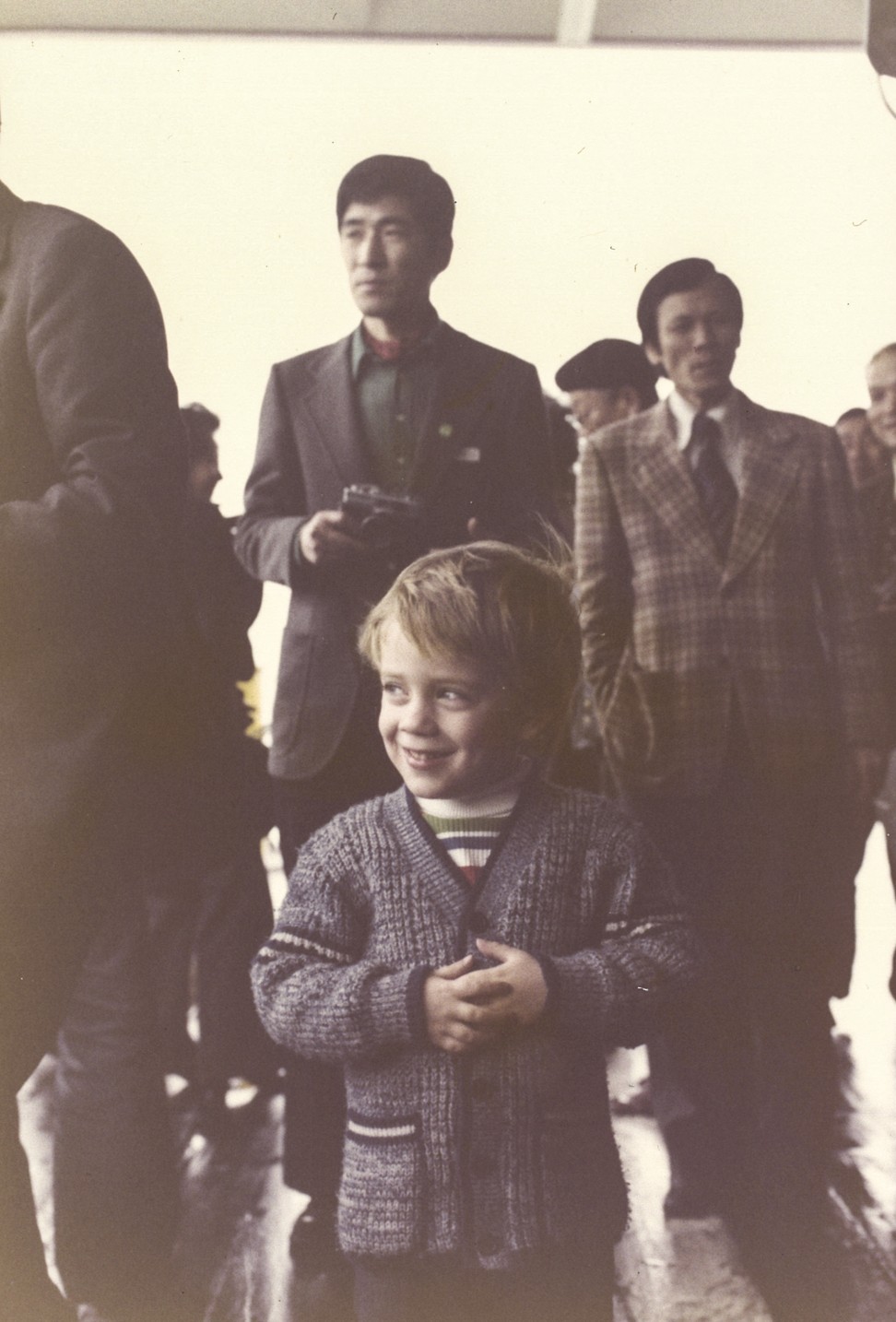
The Corcorans loved the place, in no small part because the Chinese treated them so well. As Americans, they were seen as a better class of barbarian – much nicer than the British and Japanese imperialists who had humiliated China in the 19th and early-20th centuries. And so my grandmother and her siblings would eventually fill their Californian homes with Chinese antiques and stories of the Chinese people they had known, whom they often praised for their ingenuity in surviving poverty and unenlightened rulers.
These family stories deeply influenced my father, who studied Mandarin and Chinese history in college, and then lobbied his editors at The Washington Post to send him to East Asia. In 1976, when I was three, we moved to Hong Kong, where my mother worked first at the Asian Wall Street Journal and then at the Los Angeles Times.
In Hong Kong, I went to an American-run Montessori school, dodged the wild dogs in my neighbourhood of Repulse Bay, and welcomed a baby brother, Peter. But mostly we waited for normalisation, which would open China to us.
US president Richard Nixon had visited China in 1972, but turmoil in Chinese politics (including Mao’s death in 1976) and American politics (including Watergate) meant the effort to normalise relations stalled. It wasn’t until the second half of 1978, when Deng rose to power, that the final talks necessary to re-establish diplomatic relations began. In a matter of months, the US agreed to Beijing’s demand that it abandon diplomatic relations with Taiwan, and the talks concluded quickly. So quickly, in fact, that when we got permission to move, we left for Beijing before we had found a place to live or work. So, in 1979, my parents made a highly consequential decision: to move our young family of four into a 15th-floor suite in the Beijing Hotel.

The hotel was the city’s leading spot for international visitors. First opened in 1915, it was really two buildings – a modern tower with 17 floors of rooms, connected to an older wing, used mostly for events, with traditional Chinese lobbies and decorations. The hotel was in the centre of the political universe, on the Avenue of Eternal Peace, next to the Forbidden City, and a short walk from Beijing’s famous monuments. From the window of our room, I could peer into Tiananmen Square and see the Great Hall of the People, from which the Communists ruled China.
My parents sought other housing in Beijing, but never found it, so the hotel – specifically Room 1532 – became our home for the next two years. They also worked in the hotel, renting other rooms as their offices. Sometimes they complained about raising two young children in a hotel, but my brother and I learned to appreciate the place – and rule it.
In American author Kay Thompson’s classic children’s story, Eloise, a six-year-old girl, lives in The Plaza, the hotel across New York’s Central Park, and has the run of the place. She writes on the walls, wanders into strangers’ weddings and tussles with the housekeeping staff, all the while being chased by her English nanny. My life in the Beijing Hotel was not much different.
The hotel had a professional staff, and rules of comportment that they often recited to me. But I had just turned six, and didn’t have time for rules. I rode my bicycle through the halls, into the lobby and all over the older wing, despite warnings to stop. My brother sometimes joined me on his tricycle. We explored every stairwell and wardrobe, raced on the lifts, attended events to which we were not invited and commandeered empty meeting rooms and the pool hall for our games. The hotel staff – our uncles and aunties, as we called them – sought to pacify us, teaching us Chinese songs, playing with our Matchbox cars and giving us 175ml cans of Coca-Cola (the tiny size was the only one available) or bottles of orange Chinese soda pop. The sugar only made us more energetic.
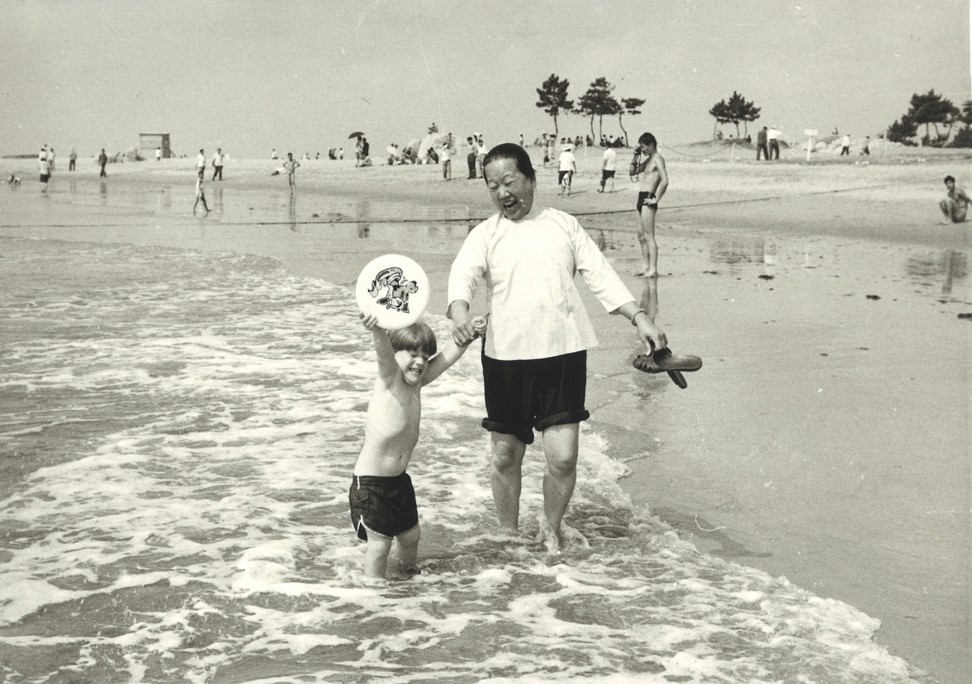
The hotel was full of important Americans travelling to China to check out new avenues of business. And I served a vital role as unofficial greeter, helping guests find their rooms and pointing the way to local attractions. Many of these early visitors to the hotel were American scientists, since Deng’s new administration had prioritised scientific and academic exchanges. I received lessons in the lobby about black holes and supernovas from visiting astronomers.
Our policing of the hotel also led to entanglements with American politicians, who raced to Beijing to build connections and help their donors pursue business opportunities. One day, my brother and I were racing our bikes down a hotel corridor when we sped into a large conference room. Peter collided with the leg of a man, who let out a loud “ouch” and fell onto the floor in pain. Our father was called to the scene, and we were made to apologise to the man, who introduced himself as Ed Koch, the mayor of Eloise’s hometown.
Technically, we were not unsupervised. In Hong Kong, my parents had hired Lau Lin, a local amah, to cook, clean our flat and take care of us, and she bravely agreed to accompany us to Beijing. But Ah Lin wasn’t always able to keep up with our hotel adventures. However, she did focus on making sure we got fed – she felt I was too skinny (“Joe has no bottom,” she would complain, in English and her native Cantonese). She wasn’t able to prepare food in the room (since it was a violation of hotel rules), so she saw to it that we made frequent visits to the dining room, where Western-style meals were served on one side and Chinese food on another. We patronised both, but soon grew sick of the limited menus.
I seized the dining-room guest book as a platform. Writing in block letters, I tore into the taste and warmth of the food, and the speed of the service, with a direct and undiplomatic American style. I critiqued nearly every meal in English, and a hotel employee translated my comments into Chinese. I got noticed. “Who is Joe Mathews?” asked a fellow diner and commenter. “This is rude,” commented another. Hotel management questioned my parents, who tried to stop me. But they had stories to file, and so I persisted. And I got results. Cooks started making dishes for me that were off the menu. They asked my opinion on changes. Not that it stopped me from criticising. Eventually, the book was removed, and a six-year-old future journalist learned his first lesson about democratic expression right there, in the heart of a communist dictatorship.
It would not be the last lesson.
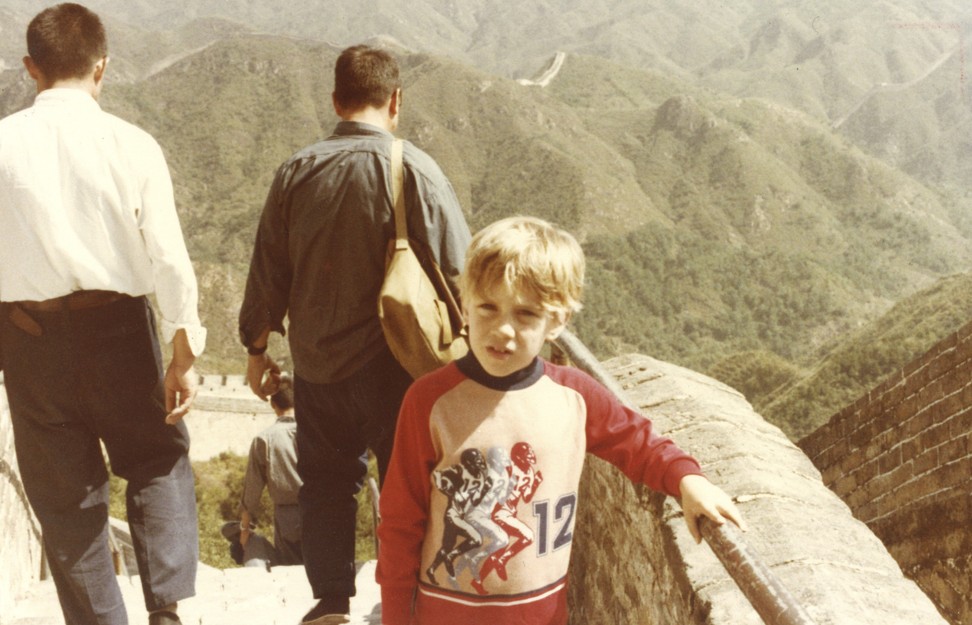
The hotel was only one piece of my education. The streets of Beijing were quite another.
With Ah Lin or my parents giving chase, I rode my bike all around our neighbourhood, joining the thousands of Chinese on bikes (there were still relatively few cars). Before long, the capital’s centre, both ancient and modern, felt utterly familiar.
I flew my kite in Tiananmen Square. My brother and I explored every inch of the nearby hutongs, Beijing’s famous narrow alleyways, and threw balls and toys against the walls of the Forbidden City. We joined the crowds lining up to visit the mausoleum that displayed Mao’s body. (“Peasant under glass,” was one expat joke I soon adopted.) And our local playground was at the Temple of Heaven, constructed by the Yongle Emperor between 1406 and 1420. There I couldn’t help but notice the amorous young couples, who spent long afternoons displaying their affections publicly. What I came to understand at that playground has allowed me to brag ever since that I first learned about sex at the Temple of Heaven.
I identified closely enough with the Chinese world view that I made drawings of Soviet planes and rockets attacking the Great Wall, and being heroically fought off by Chinese on horseback. Deng’s anti-Soviet propaganda had penetrated my consciousness; China fought a brief war with the Soviet-backed regime in Vietnam in 1979. But it wasn’t hard to find anger and conflict in the streets of Beijing. Fights were common. And arguments were frequent, especially in the black markets, where Ah Lin took me on shopping excursions. So many conversations ended in conflict, with one person declaring “W ǒ bù huì zhīchí de” (“I won’t stand for it”), that I started using the phrase myself.
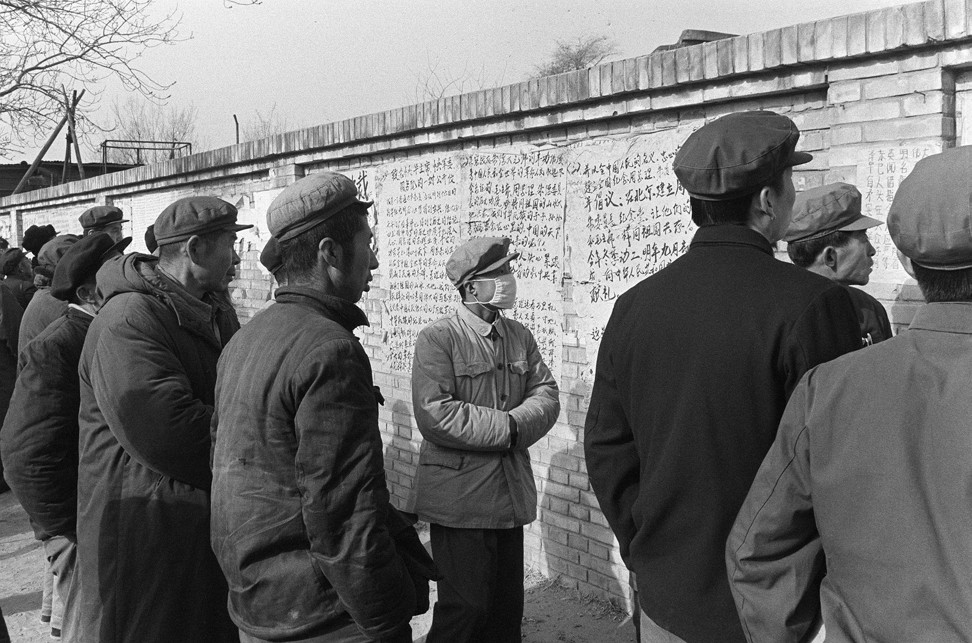
Even a six-year-old could see the link between people’s anger and their fear of the authorities. So while my parents navigated China diplomatically, and my brother learned the language and customs at his Chinese government preschool, I fought back. I refused to obey the commands of the omnipresent soldiers and police when they told me I couldn’t go here or there. I got into trouble for banging my bike into the shin of a soldier who refused to let me back into the hotel. Soon, I was an unwavering opponent of tyranny, in all its forms.
At my school, a converted garage at the US embassy, I argued bitterly with the authoritarian principal. “Joe is the most insolent child I have ever known,” she wrote in a note to my parents. When they showed it to me, I replied that she too was pretty insolent – “whatever that means”.
As it turned out, I wasn’t the only person in Beijing willing to challenge dictators.
Sometimes, my parents used me as a decoy, hoping to avoid the Chinese government surveillance that was a fact of life. Drivers and translators who nominally worked for my parents were expected to report back to the government about their activities. So, Mom and Dad would announce they were taking me for a family outing, and instead we would visit a dissident.
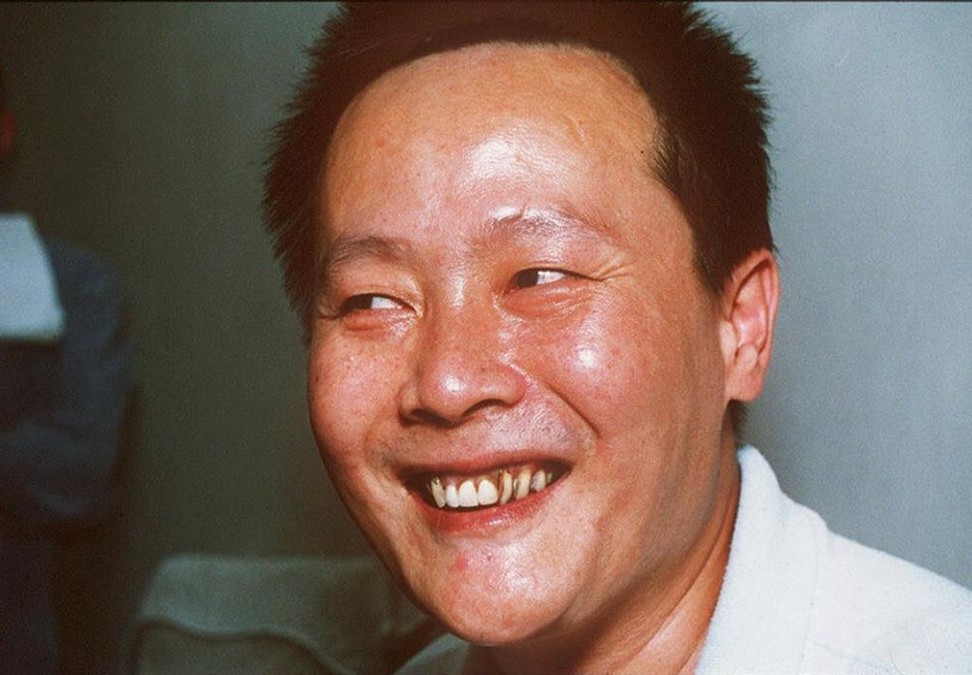
I remember in particular a man named Xu Wenli, a light-fixture repairman who was publishing a pro-democracy magazine called the April Fifth Forum. He had a seven-year-old daughter, Xingxing, who I liked to play with. Xu was a patriot who wanted his country to succeed. He was also cautious and never attacked the party’s leaders by name. But none of that saved him from being harassed and arrested by the authorities during those years.
Some of my clearest memories of Beijing involve accompanying my parents on their many visits to the Democracy Wall. In 1978, at a street corner not far from the Beijing Hotel, citizens had commandeered a long wall on which to post messages about what had happened to them or their loved ones during the Cultural Revolution. By 1979, these messages had grown more pointed, so that they included aspirations for China and democracy. I stood there while my parents copied down the postings on the wall in their notebooks. I didn’t understand much, but I remember thinking that democracy must be something very important if people were willing to stand out in the cold to read about it, especially when wind storms flooded the air with dust from the Gobi Desert.
“The leaders of our nation must be informed that we want to take our destiny into our own hands. We want no more gods or emperors. No more saviours of any kind,” Wei wrote. “Democracy, freedom and happiness are the only goals of modernisation. Without this fifth modernisation, the four others are nothing more than a newfangled lie.”
“Dissent may not always be pleasant to listen to, and it is inevitable that it will sometimes be misguided,” he famously said. “But it is everyone’s sovereign right. Indeed when government is seen as defective or unreasonable, criticising it is an unshirkable duty.”

In October 1979, Wei was convicted of publishing counter-revolutionary statements and leaking secret information and sentenced to 15 years in prison (he was eventually released to the US, where he still lives).
On January 16, 1980, Deng demanded cancellation of the constitutional right to hang wall posters and stated that the “four great” freedoms of “speaking out freely, airing views fully, holding great debates and writing big character posters […] have never played a positive role in China.”
A place so hostile to freedom is a tough place for journalists to work. Eventually, China – and hotel living – wore down my parents and us children. By 1981, we were back in California. Since then, we have mostly watched China from afar, though my dad did go to Beijing in 1989 to report first-hand on the massacre in the same neighbourhood where I once rode my bike and played Wiffle ball.
As an adult, I’ve visited China as a tourist, even staying in the room that was our home at the Beijing Hotel. But I’m not sure I would want to work there. The place is awesome and maddening, paradoxically demonstrating both the infinite potential and limits of human imagination. How could anyone who was there at the time of normalisation have imagined exactly how good and how bad things would eventually become?
Joe Mathews is the California and innovation editor at Zócalo Public Square, an Arizona State University-affiliated media organisation.
